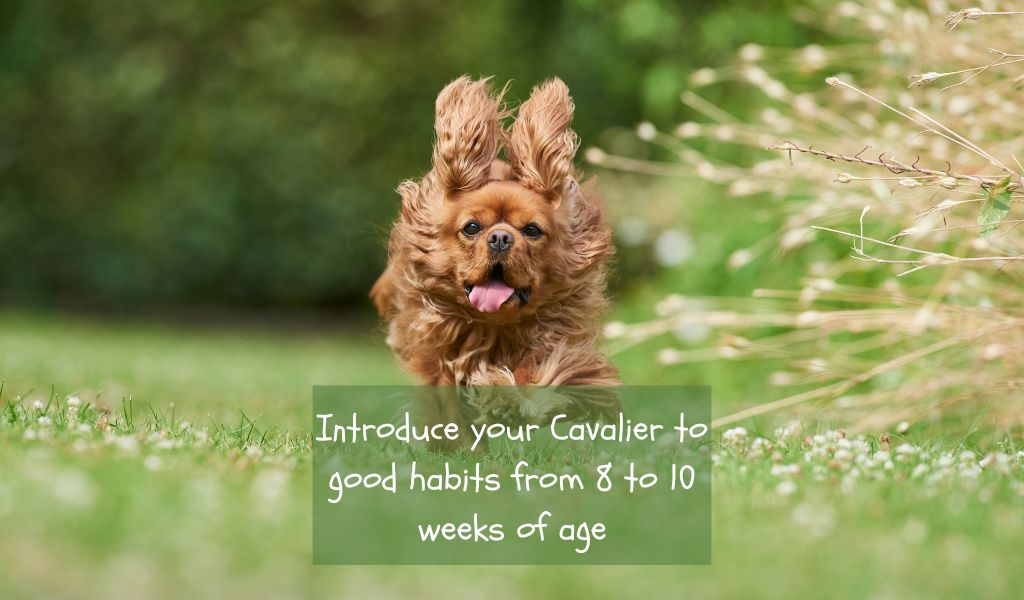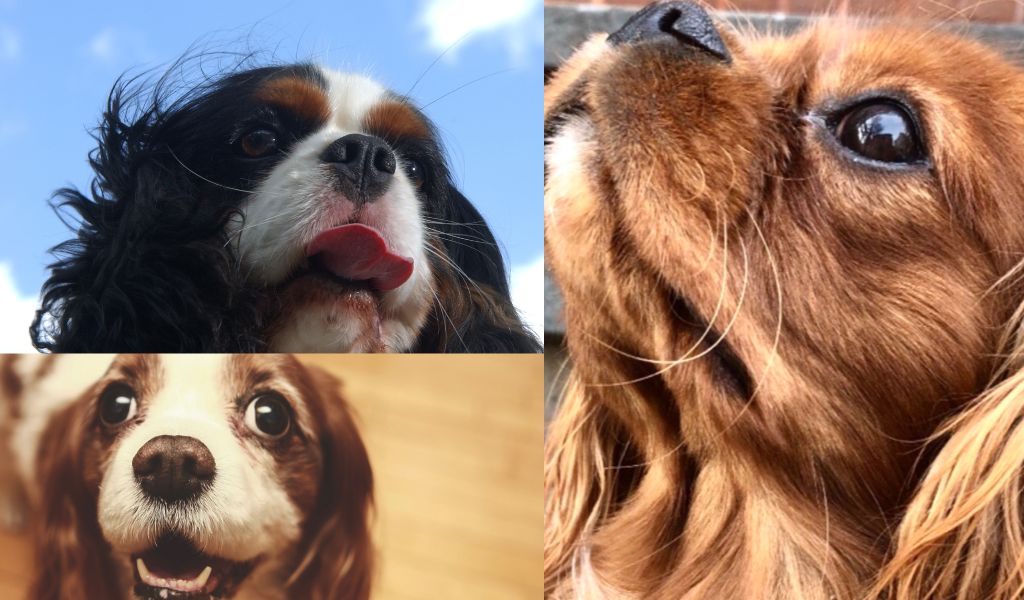Cavalier King Charles spaniels are a popular breed known for their friendly and loving nature.
They make great companions and are known for being easy to train.
However, many owners may wonder when the best age is to begin training their new pup.
In this article, we will discuss the overview of the Cavalier King Charles spaniel, the benefits of training your pup, the optimal age to begin training, tips for successful and effective training, common mistakes to avoid, and whether or not you should hire a professional trainer or train your pup yourself.
We will also discuss how to create an environment that promotes learning and development in your dog.
Your Cavalier needs to begin the basics from around 8 to 10 weeks old. The little ‘good habits’ that you introduce at an early age will reap benefits when he is older and ‘doing his real training’.
Overview of the Cavalier King Charles spaniel
The Cavalier King Charles spaniel is a small dog breed that originated in England.
They have a friendly and loving nature, making them great companions. They are known for being easy to train and are great with children and other pets.
They have a silky, medium-length coat that requires regular grooming to keep it in good condition. They are also known for being a playful and active breed.
Benefits of training your Cavalier King Charles
There are many benefits to training your Cavalier King Charles, including improved behaviour, increased obedience, and better communication between you and your dog.
Training can also help to prevent unwanted behaviours, such as barking or jumping up on people.
Additionally, training can help to strengthen the bond between you and your dog and can also provide mental stimulation for your pup.

The optimal age to begin training your Cavalier King Charles spaniel
The most ideal time is between 8 and 12 weeks old, as this is when puppies are more open to learning new information and adapting to its new home environment.
This period of development helps lay the groundwork for future training and by instilling behaviours such as knowing its name, responding to commands, and recognizing their owner during this period, you will have a much more willing student when you move onto more advanced training.
You also need to introduce socialization in these early week so be sure to introduce your pet to other animals and different user environments.
With mindful patience and a consistent routine of healthy habits and positive reinforcements, you can rest assured that you are giving your Cavalier King Charles spaniel the perfect foundation.
Tips for successful and effective training
To ensure successful and effective training, it is important to use positive reinforcement techniques, such as treats and praise.
Keeping training sessions short and consistent is also key.
Additionally, it is important to set clear boundaries and to be consistent with commands.
Avoid using physical punishment, as it can be detrimental to the training process and can damage the bond between you and your dog.
Common mistakes to avoid when training a Cavalier King Charles
One common mistake is using physical punishment or force.
This can damage the bond between you and your dog and can also make training less effective.
Another mistake is being inconsistent with commands or boundaries.
This can cause confusion for your dog and can make it more difficult for them to learn.
Lastly, not providing enough mental stimulation can also be a mistake, as this can lead to behavioural issues.
The only spaniel training book you’ll ever need
Should you hire a professional trainer or do it yourself?
Whether or not you should hire a professional trainer or train your dog yourself depends on your individual situation.
If you feel that you need extra help or guidance with training, a professional trainer can be a great resource.
However, if you feel confident in your ability to train your dog, you can certainly do it yourself.
Remember that there are lots of training resources available to access, websites such as this one, books such as Training Spaniels by Joe Irving are an excellent source of advice.
It’s also worth noting that if you do opt for a professional then you will need to also have lessons so that you can help your Cavalier to adapt to your commands as opposed to those of the trainer.
A professional trainer can be useful but your Cavalier will still need to heed to your commands. You will also need ‘lessons’ from the trainer after he has finished his work with your dog.
Wrapping Up – How to create an environment helps your dog to learn
To create an environment that promotes learning and development in your dog, it is important to provide them with plenty of mental stimulation.
This can include interactive toys, training exercises, and regular walks.
Additionally, providing a consistent routine and clear boundaries can also help to promote learning and development.
FAQs
When should I start training my Cavalier King Charles?
It is recommended to start training your Cavalier King Charles as early as possible, ideally around 8 to 10 weeks of age, to establish good behaviour and socialization habits from the beginning. Early training sets a foundation for obedience and helps them develop into well-behaved adult dogs.
Can I start training my Cavalier King Charles later than 8 to 10 weeks?
While it’s best to start training early, you can still train your Cavalier King Charles at any age.
However, keep in mind that puppies are more receptive to learning during their early developmental stages.
Starting training later may require additional patience and persistence, but with consistency and positive reinforcement, you can still achieve successful results.
Is professional training necessary for my Cavalier King Charles?
Professional training is not mandatory for training a Cavalier King Charles, as you can successfully train them on your own. However, professional help can be beneficial, especially if you encounter specific challenges or want to participate in advanced training activities.
A professional dog trainer can provide expertise, guidance, and tailored training programs to address your Cavalier’s specific needs.
Final Words
Overall, starting training your Cavalier King Charles spaniel at around 8-10 weeks old is the optimal age.
Positive reinforcement techniques, consistency, and clear boundaries are key for successful and effective training.
Avoiding common mistakes such as physical punishment and inconsistency can help to prevent behavioural issues.
Whether or not you choose to hire a professional trainer or train your dog yourself is a personal decision, but it’s important to ensure that your pup is receiving the guidance and support they need to thrive.
By providing a stimulating and structured environment, you can promote learning and development in your dog, strengthening your bond and helping them to reach their full potential.




